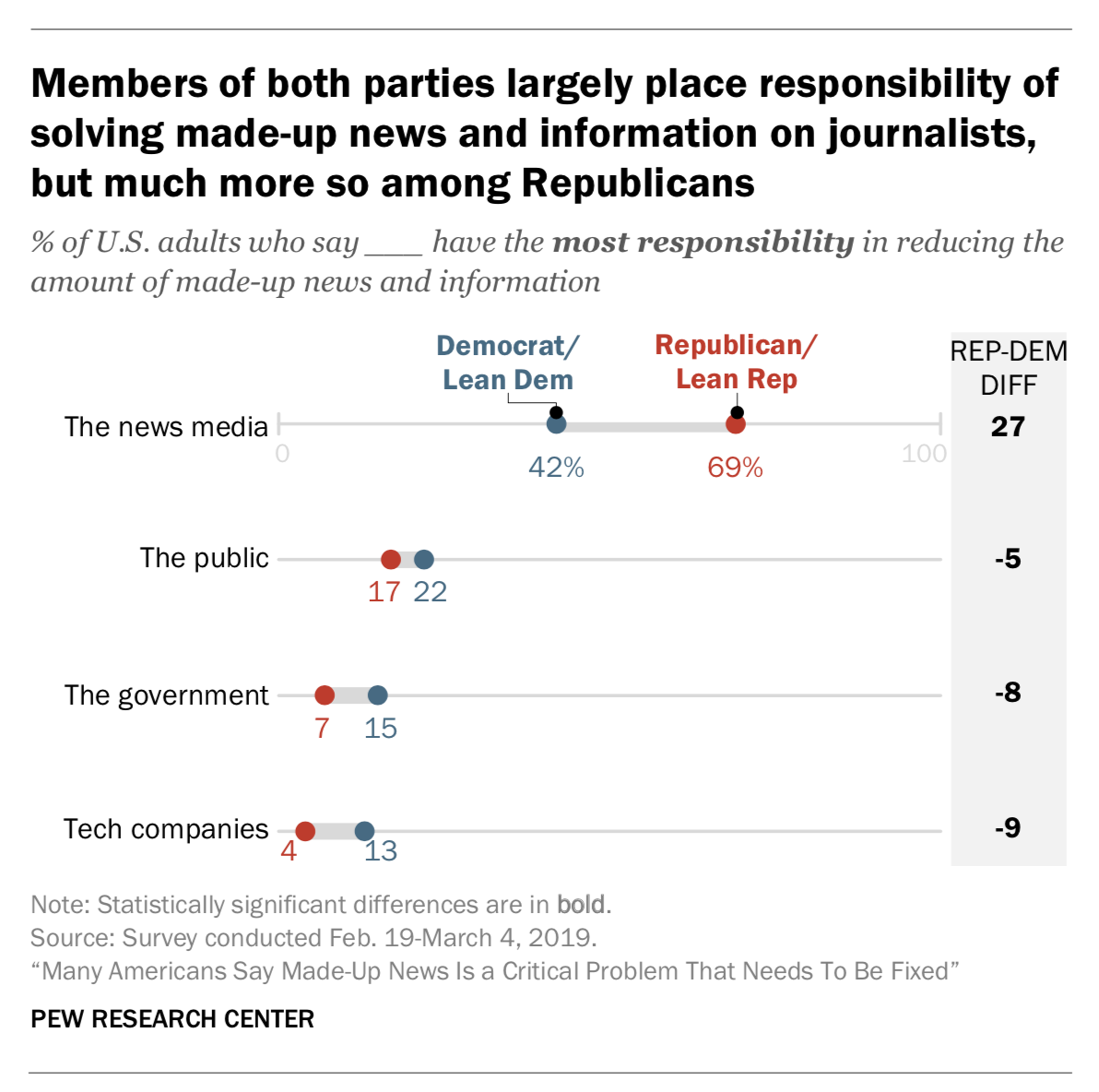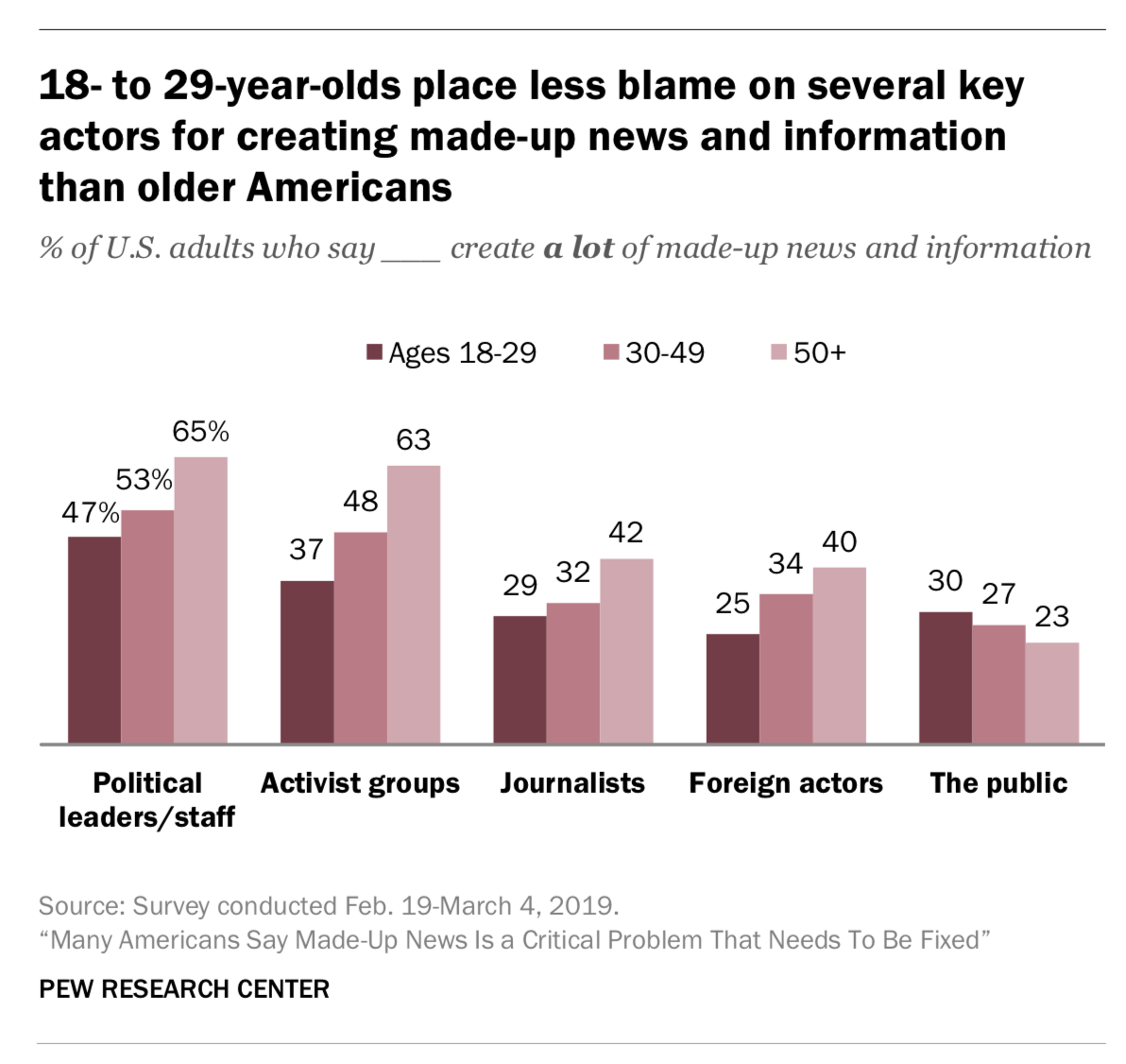
U.S. adults are more likely to say that “made-up news/info” is a big problem than they are to identify climate change, racism, terrorism, or sexism as such, according to a study out from the Pew Research Center Wednesday: Fifty percent of those surveyed said made-up news (the artist formerly known as “fake news”) is a “very big problem” in the United States. By comparison, 46 percent called climate change a “very big problem”; 40 percent said the same about racism; 34 percent said the same about terrorism.

“Made-up news/info” can’t touch some other issues, though — like drug addiction and affordable health care. It ranks only a hair behind income inequality.
The report is the bleakest I’ve seen when it comes to the partisan divide in the United States around fake news. Republicans are much more likely than Democrats to identify made-up news as a “very big problem.” (They are, after all, told it’s a huge problem repeatedly by the president.) They are also more likely to say that they see it “often,” and they are three times as likely as Democrats to blame journalists for creating it. Republicans are also more likely to say that they have “reduced the amount of news they get overall” out of their concerns over fake news.
Here, for instance, are Americans overall:

And here are Republicans:


Seventy-nine percent of Americans think “steps should be taken to restrict made-up news and information intended to mislead” — a statistic that is frightening for journalists considering that Republicans are more likely to think fake news is a big problem and to blame journalists for it, and when you consider that some of the harshest “fake news” bans have come from countries with authoritarian governments where the bans can be seen as clamping down on journalism and free speech. Pew didn’t ask, in this survey, precisely what measures Americans think should be taken to reduce fake news — but 53 percent of survey respondents said the greatest responsibility comes from “the news media,” compared to only 9 percent who said the same about tech companies.

In addition to the political divide, Pew identified other demographic differences in Americans’ concerns about fake news. 18- to 29-year-olds are less concerned about fake news than those ages 50 and older, are less likely to say they encounter it often, and are less likely to blame journalists for it. In fact, “the only group that the youngest adults put somewhat greater blame on is the public (30% vs. 23% of the oldest age group).” 18- to 29-year-olds are also more likely than older age groups “to have taken certain steps to combat [fake news] or to limit their exposure to it.”

The full report is here.